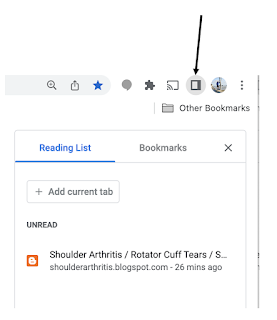This group of women and men is truly outstanding - one of the best we seen since starting our fellowship in 1988. Two of these candidates will join our 57 fellowship alumni who are now practicing shoulder and elbow surgery across the country - from Seattle to Miami, from SanDiego to Portsmouth, New Hampshire. Almost all of our graduates are members of the American Shoulder and Elbow Surgeons (ASES). One-quarter of our graduates have been recruited to university faculty positions.
Our goal is to enable our fellows to master advanced skills in diagnosis and surgical management of both common and rare conditions that prevent patients from enjoying their lives. In addition, we will provide opportunities for them to engage in cutting edge research investigating some of the major questions faced by our specialty, such as
(1) when is rotator cuff repair not in the best interest of a patient with a cuff tear?
(2) what evidence should guide treatment for irreparable rotator cuff tears?
(3) what can be offered to a patient with arthritis who wishes to pursue activities beyond what is recommended for a conventional total shoulder?
(4) how important is it to "correct" glenoid retroversion in performing shoulder arthroplasty?
(5) is there a practical alternative to the reverse total should for patients with cuff tear arthropathy and retained active elevation?
(5) how can surgeons monitor the quality of their practice outcomes to identify what is working and what is not?
(6) how can we avoid unnecessary expenses of imaging - a cost that consumes much of the resource spent on shoulder and elbow care?
(7) how can we evaluate the many new orthopaedic implants and products brought to market each year to determine if their increased cost results in increased benefit to our patients?
(8) how can we make shoulder and elbow surgery safer from the risk of infection?
We are excited to be tackling these and other 'big questions'. We are excited to have the partnership of our fellows, who help us and who end out teaching us as well. For sure, the future is brighter because of them.
Here are the publications of our core faculty:
Jason Hsu
Frederick Matsen
Winston Warme
Albert Gee
Jonah Hebert-Davies
Here are some videos that are of shoulder interest
Shoulder arthritis - what you need to know (see this link).
How to x-ray the shoulder (see this link).
The ream and run procedure (see this link).
The total shoulder arthroplasty (see this link).
The cuff tear arthropathy arthroplasty (see this link).
The reverse total shoulder arthroplasty (see this link).
The smooth and move procedure for irreparable rotator cuff tears (see this link).
Shoulder rehabilitation exercises (see this link).
Here are some links about our fellowship and our area:
The University of Washington Shoulder and Elbow Fellowship
Life in Seattle
Beautiful Seattle
How to find the best hikes around Seattle
The Pacific Northwest
To add this blog to your reading list in Google Chrome, click on the reading list icon

Follow on twitter: https://twitter.com/shoulderarth
Follow on facebook: click on this link
Follow on facebook: https://www.facebook.com/frederick.matsen
Follow on LinkedIn: https://www.linkedin.com/in/rick-matsen-88b1a8133/
(1) when is rotator cuff repair not in the best interest of a patient with a cuff tear?
(2) what evidence should guide treatment for irreparable rotator cuff tears?
(3) what can be offered to a patient with arthritis who wishes to pursue activities beyond what is recommended for a conventional total shoulder?
(4) how important is it to "correct" glenoid retroversion in performing shoulder arthroplasty?
(5) is there a practical alternative to the reverse total should for patients with cuff tear arthropathy and retained active elevation?
(5) how can surgeons monitor the quality of their practice outcomes to identify what is working and what is not?
(6) how can we avoid unnecessary expenses of imaging - a cost that consumes much of the resource spent on shoulder and elbow care?
(7) how can we evaluate the many new orthopaedic implants and products brought to market each year to determine if their increased cost results in increased benefit to our patients?
(8) how can we make shoulder and elbow surgery safer from the risk of infection?
We are excited to be tackling these and other 'big questions'. We are excited to have the partnership of our fellows, who help us and who end out teaching us as well. For sure, the future is brighter because of them.
Here are the publications of our core faculty:
Jason Hsu
Frederick Matsen
Winston Warme
Albert Gee
Jonah Hebert-Davies
Here are some videos that are of shoulder interest
Shoulder arthritis - what you need to know (see this link).
How to x-ray the shoulder (see this link).
The ream and run procedure (see this link).
The total shoulder arthroplasty (see this link).
The cuff tear arthropathy arthroplasty (see this link).
The reverse total shoulder arthroplasty (see this link).
The smooth and move procedure for irreparable rotator cuff tears (see this link).
Shoulder rehabilitation exercises (see this link).
Here are some links about our fellowship and our area:
The University of Washington Shoulder and Elbow Fellowship
Life in Seattle
Beautiful Seattle
How to find the best hikes around Seattle
The Pacific Northwest
To add this blog to your reading list in Google Chrome, click on the reading list icon

Follow on twitter: https://twitter.com/shoulderarth
Follow on facebook: click on this link
Follow on facebook: https://www.facebook.com/frederick.matsen
Follow on LinkedIn: https://www.linkedin.com/in/rick-matsen-88b1a8133/
